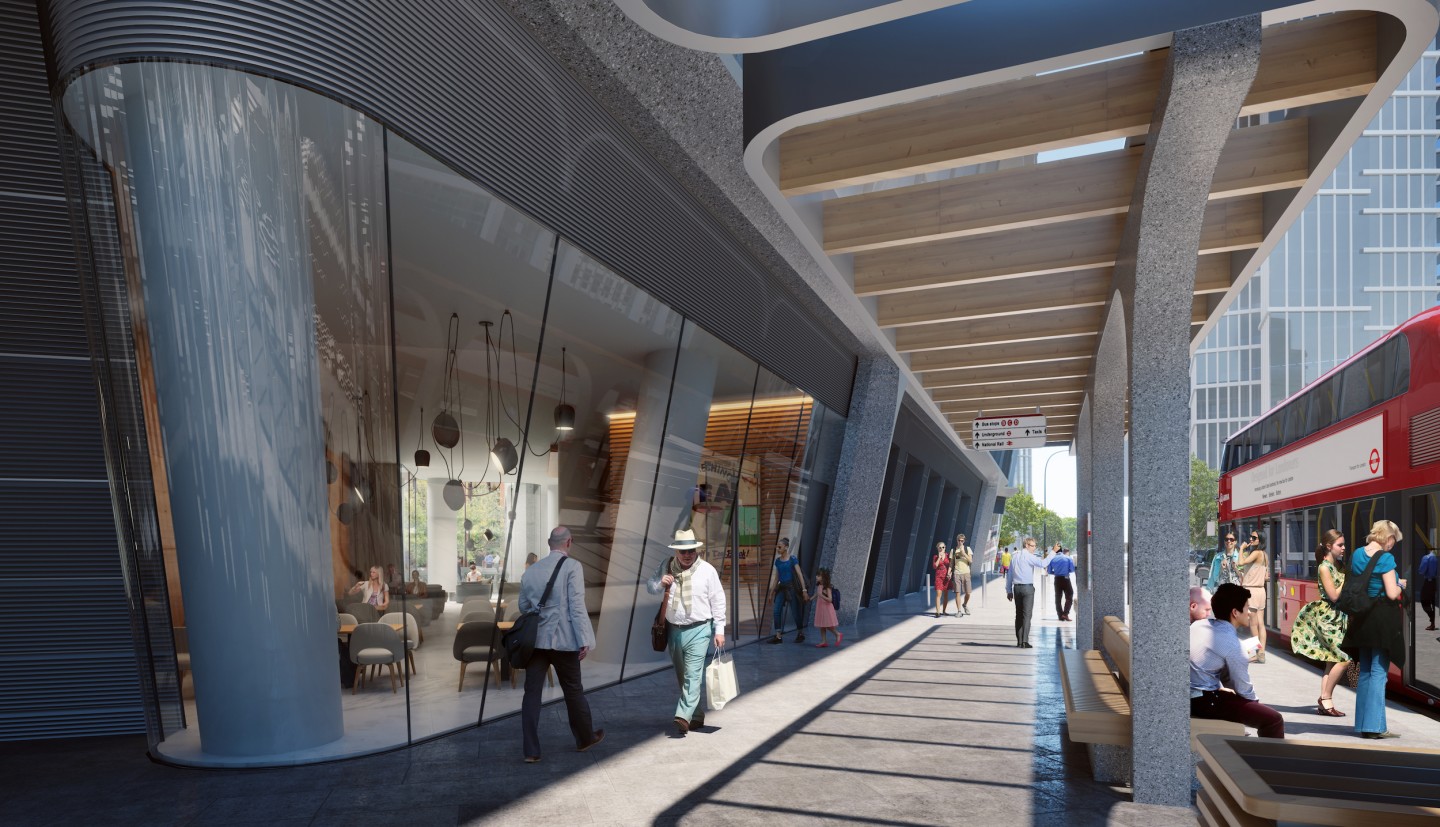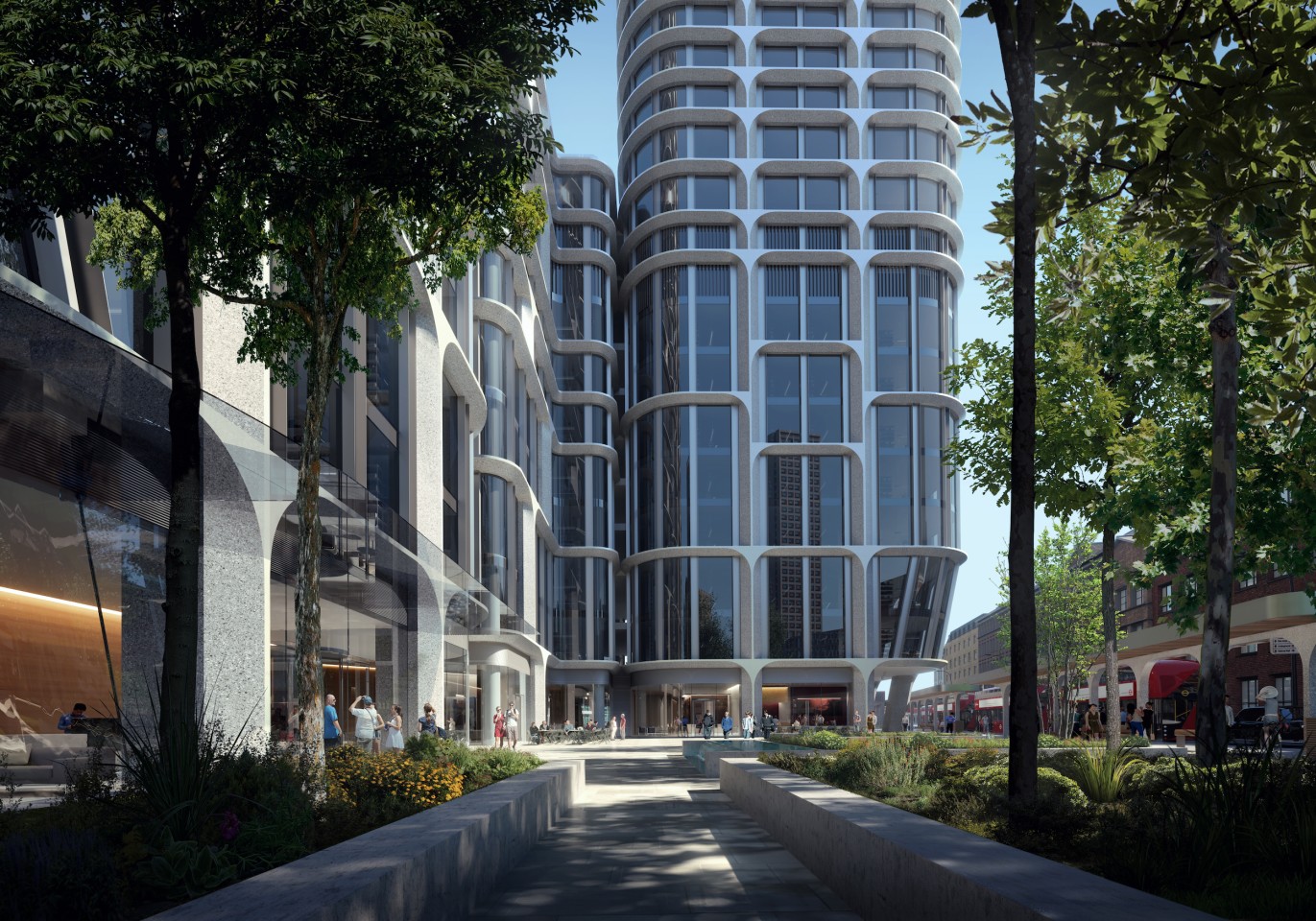Two eye-catching skyscrapers by Zaha Hadid Architects that are envisioned for London, UK, have been granted planning permission, though the project has reportedly proven controversial with some locals. Vauxhall Cross Island will include office, hotel, and residential space.
The Vauxhall Cross Island project, which late studio head Hadid herself is credited as designing along with longtime creative partner and current Zaha Hadid Architects boss Patrik Schumacher, consists of a skyscraper reaching a height of 185 m (606 ft) and another tower measuring 151 m (495 ft). The pair will be connected by a podium building measuring 49 m (160 ft) in height, and a new public square and pedestrian routes will also be created.

Slashcube
The towers will be defined by an interesting grid-like facade that’s a little reminiscent of the firm’s 582-606 Collins Street and One Thousand Museum, and while details are scant at this stage, the majority of available floorspace will be given over to office space, plus there will be a new 500-plus room hotel and roughly 260 new homes, some of which will be affordable social housing. Additionally, the street level will host retail and dining areas.
The project was originally unveiled a couple of years ago and looked unlikely to go ahead as both towers breach local planning laws, which state that buildings must not be over 150 m (492 ft). Additionally, local campaigners reportedly claimed that it could cause travel chaos for up to 70,000 commuters per day, despite a plan to replace a bus station (that will be removed during the build) with another.
This kind of issue was recently brought into sharp focus in New York City, where a skyscraper may have to be reduced in size due to local opposition. However, in this case, the authorities decided to give Vauxhall Cross Island the thumbs up on appeal, writing that the architectural quality of the project was “undeniable” and that there “would also be no material changes to views in the wider area.”

Slashcube
We’ve no word yet on when construction of the skyscrapers is due to begin construction, nor an expected date of completion.
Source: ZHA
Source of Article